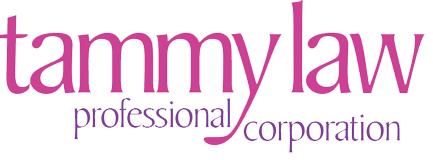There are no two families that are completely alike. Each family has their own particular challenges and personalities. Children have different needs. Spouses have different goals. Since family law is about people and their particular circumstances, it makes no sense to have a “one size fits all” approach to family law resolution. This is why we believe it is important to make the correct process choice with you.
Family Law Negotiation & Representation
Generally, a process choice is decided upon at the end of the first meeting with you. During that meeting, we will provide you with information about the different processes available and suggest a process that we believe would work given your particular circumstances. If we are unable to assist you, we will also refer you to other practitioners who we believe can ably handle your matter in a satisfactory manner.
Call NowThe services that we provide with respect to family law are as follows:
We accept and have experience with the following types of family law matters:
- Property division
- Spousal support
- Child Support
- Variation of support
- Parenting of children
- Grandparent access
- Hague Convention and International Child Abduction
- FRO matters
- Separation Agreements
- Cohabitation Agreements and Marriage Contracts
- Appeals
In traditional negotiation, parties and their lawyers generally attempt to arrive at a settlement. This type of settlement work may be done completely remotely between the lawyers (either through correspondence or telephone calls) or, depending on the clients’ comfort level, may involve four-way meetings with clients and lawyers involved.
Prior to any actual negotiation, each party’s lawyer may request financial documents from the other and may request disclosure of other documentary evidence. Once this documentation has been received, each party may individually prepare financial statements or net family property statements showing what they believe is an accurate picture of the family’s finances
The negotiation process generally tends to be more adversarial and lawyers play a large role in the process and outcome. This type of negotiation is well suited for parties who are unable to speak face-to-face with one another and require the assistance of a lawyer to help them communicate with the other party.
Collaborative family law is a creative process that allows families to negotiate a family law agreement in a supported environment. Unlike traditional family law representation, there is no threat of “court” hanging over the negotiations, although “the law” and legal framework continues to play a role in the proceedings. Collaborative practice emphasizes listening and understanding your interests and attempts to help you arrive at solutions tailored to your life and family.
The hallmarks of collaborative law include:
- An agreement by both spouses that they will not proceed to court while engaged in the collaborative process
- Focus on your interests rather than “the fight”
- Creative problem solving and option generation
- The option to involve team members such as financial professionals and social workers in addition to a lawyer for further support
- A supportive and safe environment, although not necessarily “easier” negotiation
- Assistance and representation by lawyers and other team players specifically trained in collaborative law
- Arrival at a mutually agreeable solution to family problems on a short term and long term basis
Due to the nature of collaborative practice, only those lawyers trained in collaborative practice are able to practice “Collaborative Family Law”. I have been trained in collaborative practice and am a member of Collaborative Practice Toronto.
If you want to learn more about Collaborative Family Law, feel free to contact me.
Collaborative Law Resources:
When parties are able to work out their differences either directly with each other or through a mediator, they will nevertheless need to see a lawyer to “formalize” their agreement. In these cases, we see our role as providing you with “Independent Legal Advice” or in some cases, drafting services.
Independent Legal Advice is an important step to the formalization of any agreement. During this process, we generally advise you of the consequences of your agreement and whether it departs significantly from established legal principles. We may also review the financial disclosure that has been provided to ascertain whether the agreement is a “fair” one on a legal standard. Obtaining a sound legal opinion about your separation agreement allows you to determine whether you still want to go ahead with the agreement or not. It ensures that you enter the agreement with your “eyes open” and helps to prevent the agreement from being unravelled in the future.
We will represent you fearlessly in court at all stages of a family law proceeding. Although we are settlement-oriented lawyers, some cases benefit from court involvement and require judicial assistance before a resolution can be reached. In our experience, the majority of family law cases in court settle, however, we will not shy away from a trial on your behalf when needed.
Although we view litigation as a last resort, we have extensive experience in litigation and have represented clients at all levels of court in Ontario and at the Supreme Court of Canada, both at trials and on appeals. Our courtroom experience has included cases involving child custody, access, child support, spousal support and property. We have also litigated complex family law cases, including cases involving the Hague Convention on the Civil Aspects of Child Abduction.

